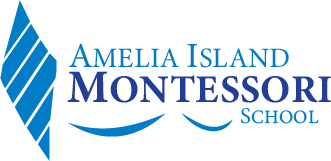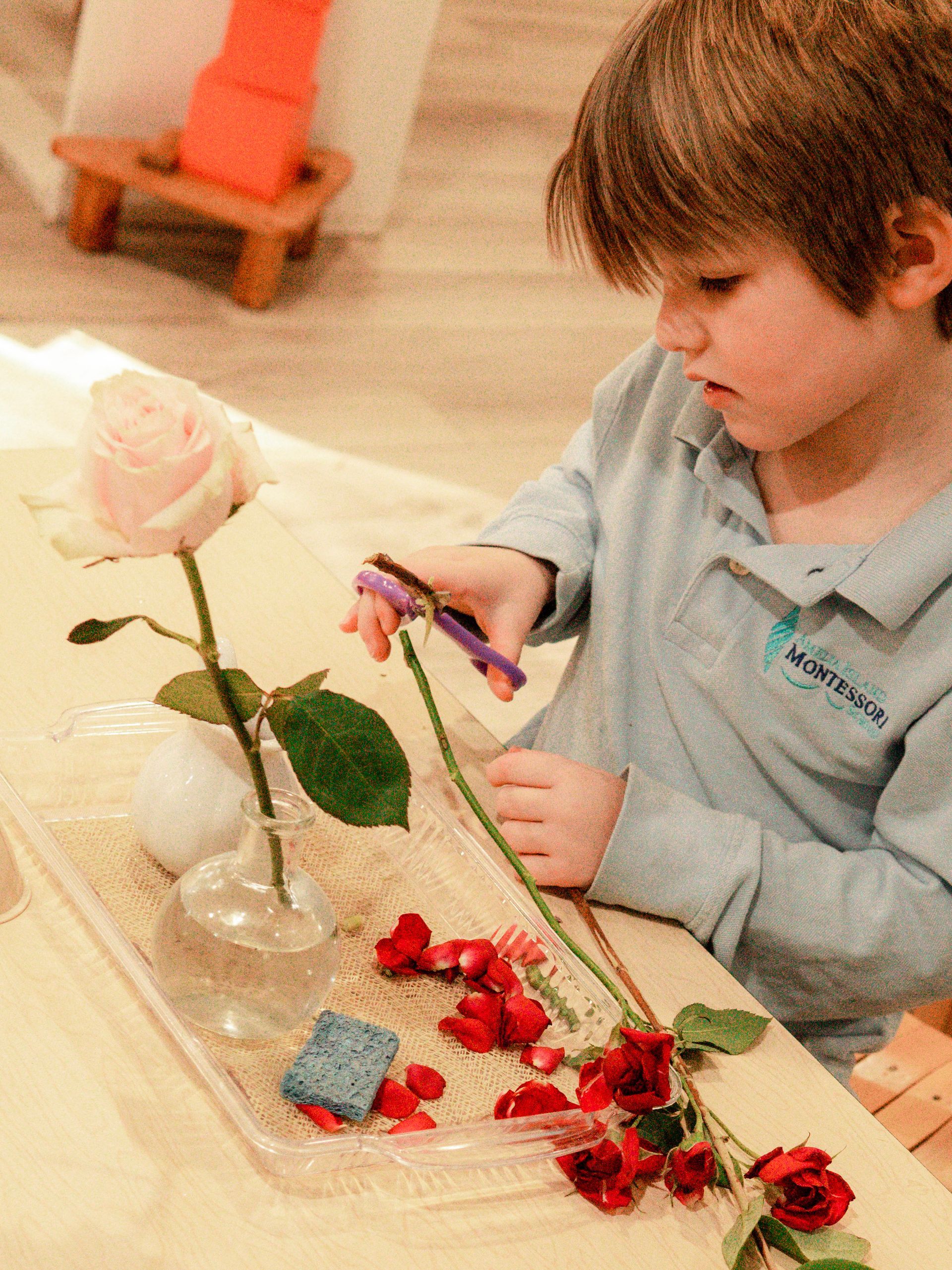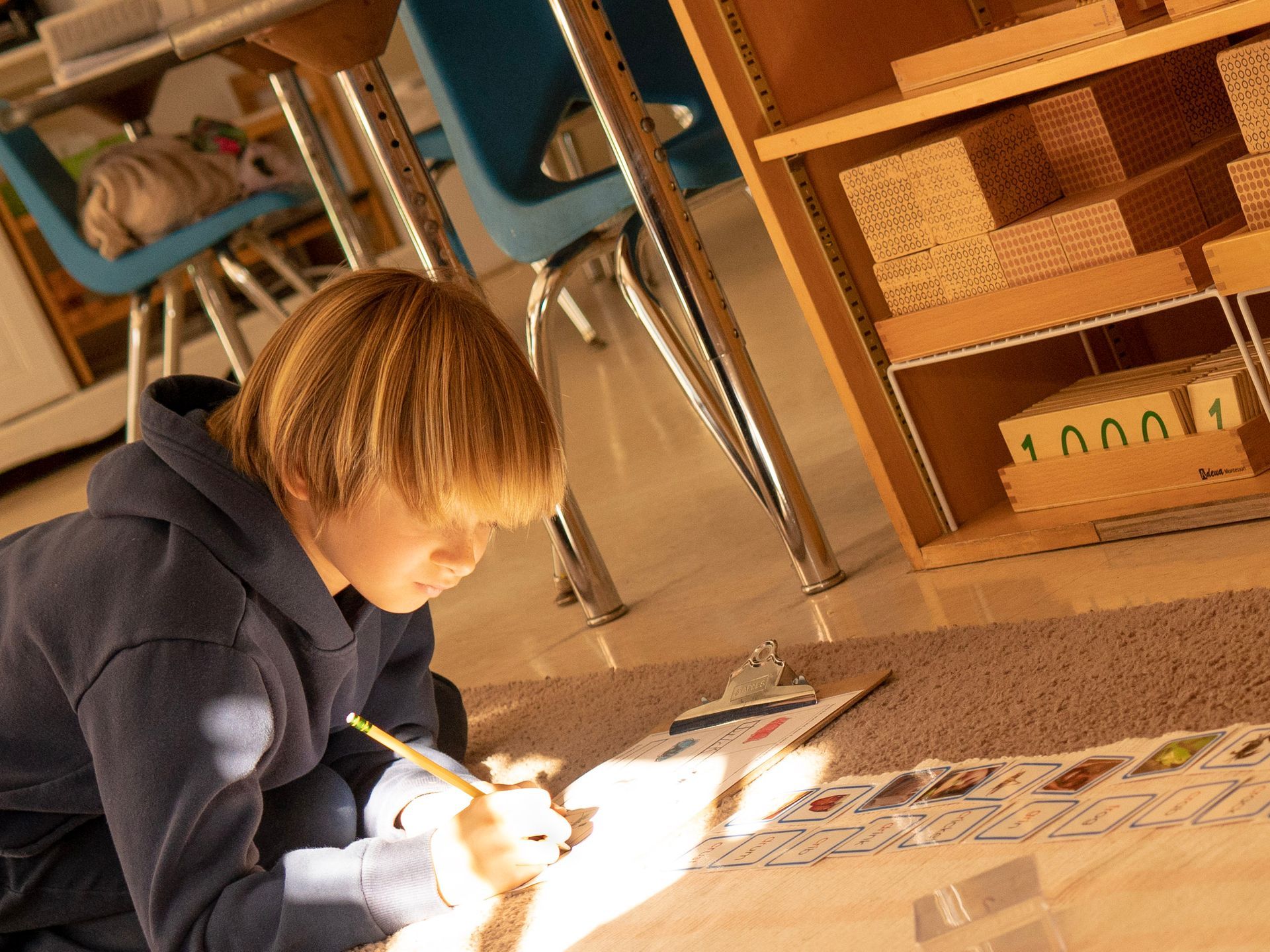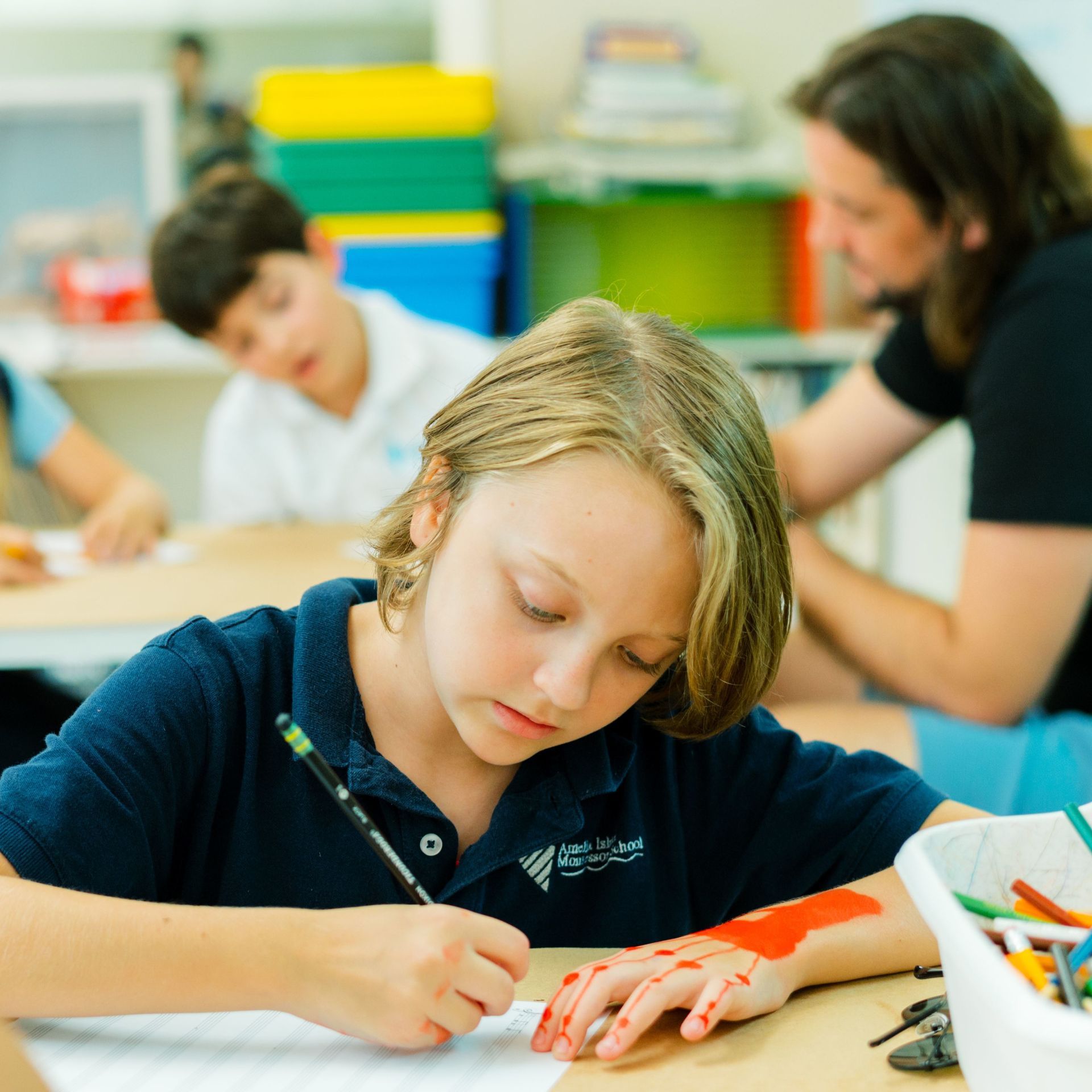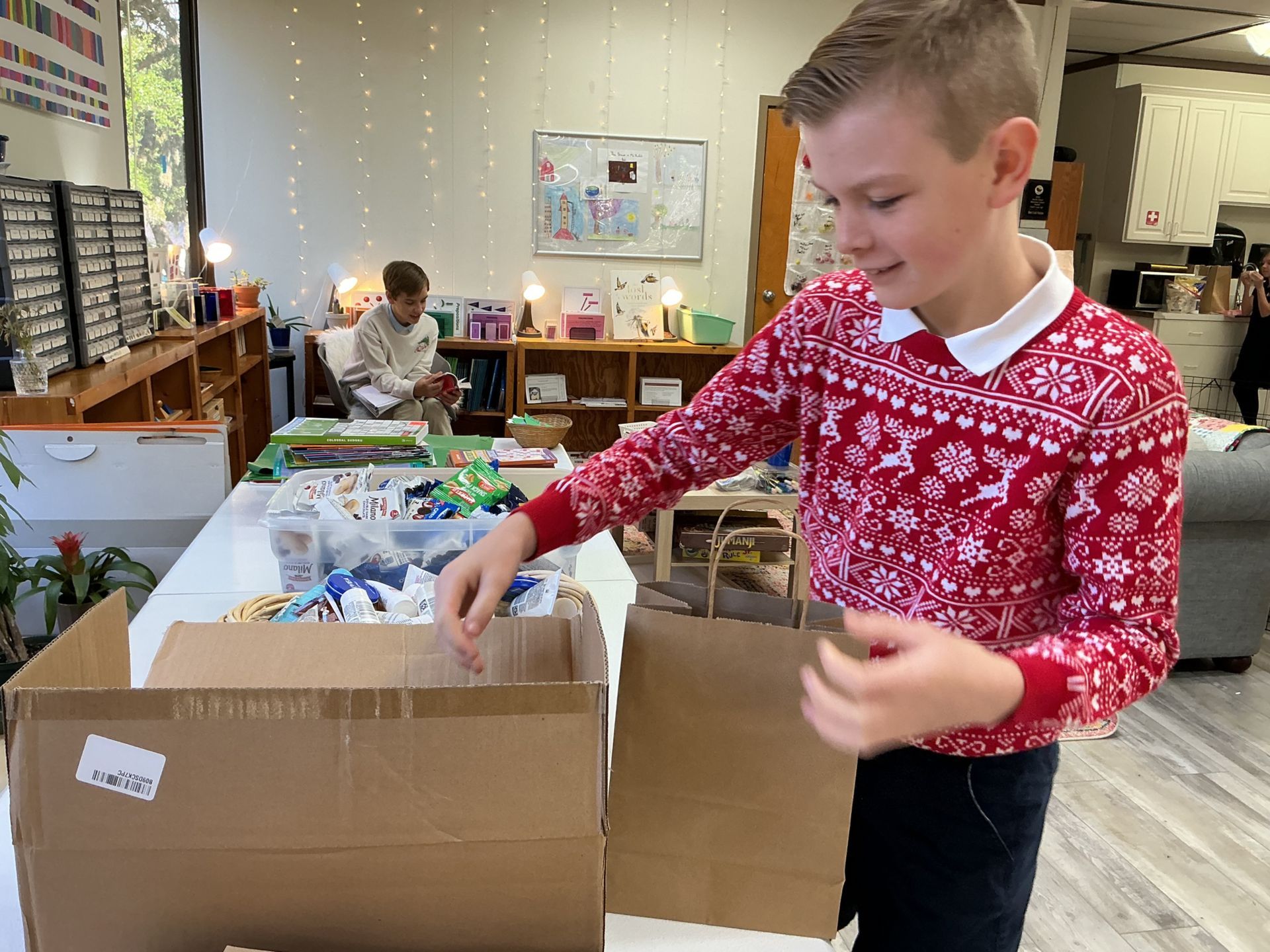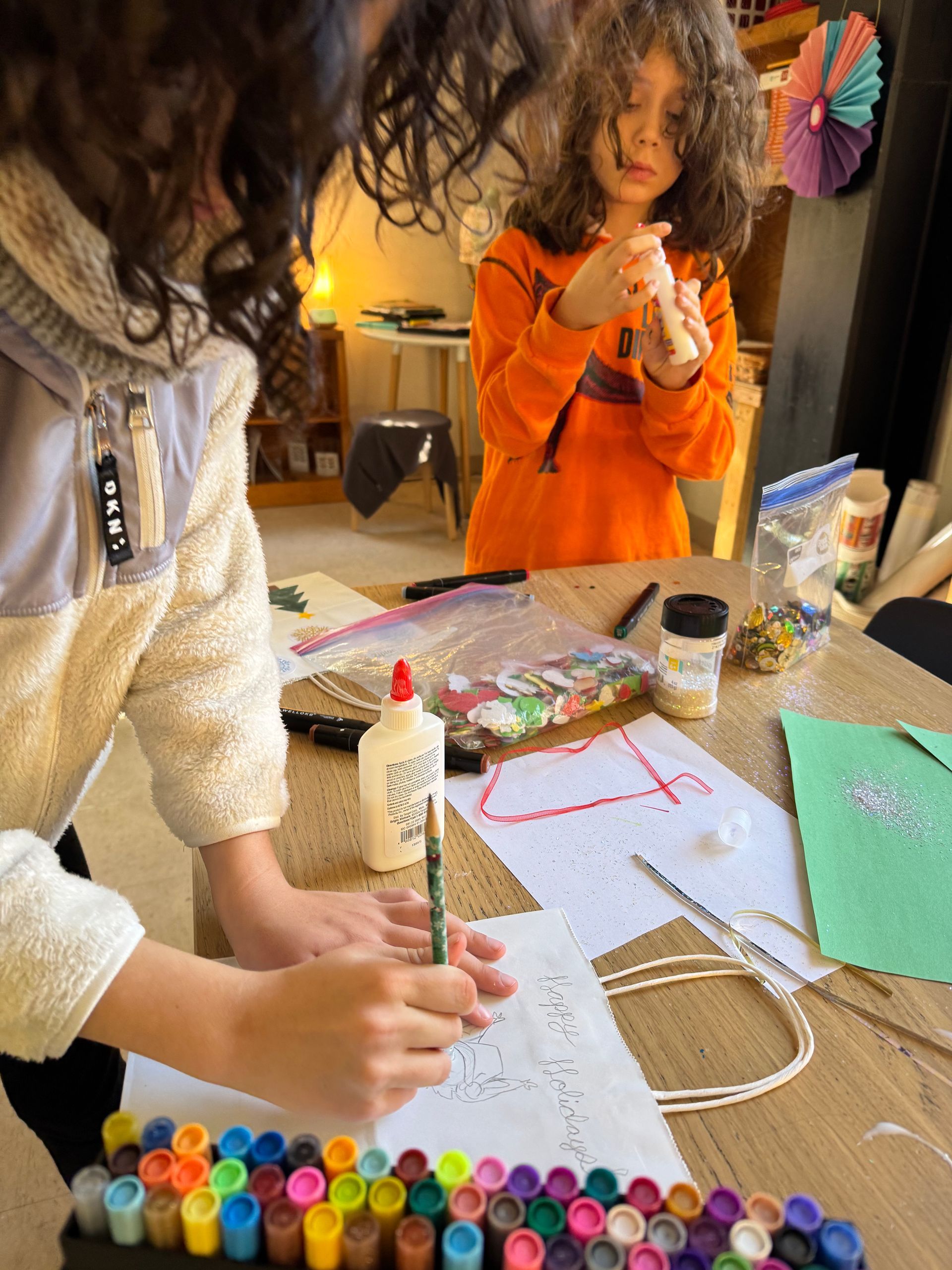Lessons are designed and given to each child when they are most ready to learn.
Social, emotional, and physical development is emphasized along with academic skills.
Current neurology and human development research consistently backs Montessori.
This is Why We Believe in The Montessori Approach!
Our Mission
Amelia Island Montessori embodies a child-centered education, grounded in Montessori philosophy and methodology, that supports the "whole child," inspiring independent thinkers and cultivating collaborative citizens.
Our Programs
Parent Reviews
"We are immensely grateful to the staff and the community at Amelia Island Montessori School, for loving and educating our children. We see our kids blossom every day, as only happy children can."
Oana B.
“AIMS is a dream school – positive, supportive, collaborative, inclusive. They celebrate different cultures and invest the time to learn what will help each individual student grow. Our son’s doctor said she had never seen parents and teachers be so in tune before.”
Erin L.
Our Blog

Visit us!
We invite you to visit our school, meet the teachers, and observe the children in their classrooms. We encourage you to ask questions and learn about the opportunities available at all levels of our programs.
Montessori or Conventional: What’s Right for Your Family?
Read the White Paper ➞
Our Non-Discrimination Policy
AIMS admits students without regard to race, color, sex, religion, national origin or any other category protected by applicable law and provides students with equal access to the rights, privileges, programs and activities generally accorded or made available to students at AIMS. The School does not discriminate based on race, color, sex, religion, national origin or any other category protected by applicable law in administration of its educational policies, scholarships and other organizationally-administered programs.
